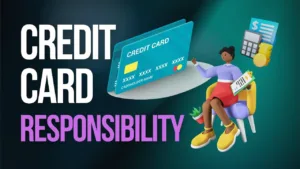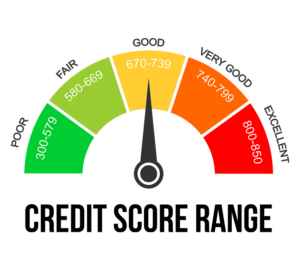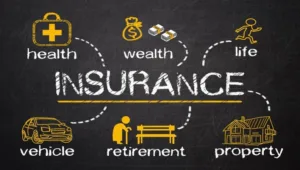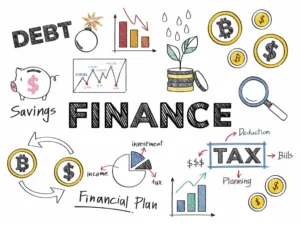Financial Literacy and Money Management Resources
Becoming financially independent can seem daunting, especially if you feel as though you have not been adequately prepared. Educating yourself about money management tips is crucial.
Below is information and tips to help you become a well versed in money management.
Budgeting
The most important money management tip is to make a budget every month. Knowing what’s coming in and what is going out is crucial to financial stability. Taking the time to review and know if you have more going out than coming in will allow you to examine and see what you can cut back on. It’s best to write down or digitally keep track of your budget.
You can use this Make a Budget worksheet, published by the Federal Trade Commission, to help guide you.
Tools and Apps to assist you in Managing Your Finances
- YNAB: This app is designed so that users plan ahead for their financial decisions, rather than track past transactions. YNAB follows the zero-based budgeting system, which has you make a plan for every dollar you earn.
- Goodbudget: Goodbudget is more about planning for your finances than tracking previous transactions. This app is based on the envelope budgeting system, in which you portion out your monthly income toward specific spending categories (called envelopes).
- EveryDollar: This apps offers a zero-based budgeting framework
- Empower Personal Wealth: Empower Personal Dashboard, formerly Personal Capital, is primarily an investment tool, but its free app includes features helpful for budgeters looking to track their spending.
- PocketGuard: Always know where your money goes with this simple budgeting app. Get simple answers to difficult budgeting questions just in 15 minutes. Spend less than you earn to stop overspending, achieve your financial dreams, and experience a brighter financial future.
- Honeydue: Honeydue is designed so you and your partner can view both your financial pictures in one app. The free budget app automatically categorizes expenses, but you’re also able to create custom categories. Together, you can set up monthly limits on each of these categories, and Honeydue will alert you when you or your partner is nearing them.
- RocketMoney: Rocket Money App makes it easy to set up a budget that automatically monitors your spending by category. Spend trackers and alerts help keep you on track toward your financial goals.
- Credit Karma: Credit Karma will allow you to see your expenses and account balances in one place, track your net worth, monitor your categorized monthly cash flow, and find opportunities to save money and navigate complex financial decisions.
Paying for College
Financial Aid Starts With FAFSA
The Free Application for Federal Student Aid (FAFSA) is a form completed by college students that determines eligibility for financial aid, and needs to be submitted for each academic year.
The FAFSA is about more than just federal loans; it also determines eligibility for federal grants, and submitting your FAFSA is often a key step in applying for scholarships! Go to www.studentaid.gov to get started.
The 2024–25 Free Application for Federal Student Aid (FAFSA) form is now available. You can complete the form to apply for financial aid to help pay for attendance at college between July 1, 2024, and June 30, 2025.
Why is the FAFSA so important? Watch this vide to find out: https://youtu.be/NmEP38x-1Z8
Submitting the FAFSA does not affect your credit score, and having bad credit will not affect your eligibility for federal aid!
Loans and Scholarships
Financial aid is money to help pay for college or career school. Grants, work-study, loans, and scholarships help make college or career school affordable.
Most students use federal or private loans to pay for their college fees, in addition to grants and scholarships.
Don’t leave money on the table. What if there was an opportunity to receive $50 toward college or $100? What difference would that make to you as a college student? Not much? But what if there were multiple opportunities? A few scholarships here, a grant there, can add up quickly and make a big difference in helping you pay for a college education. The good news is there are scholarships available, no matter where you are in your educational journey. All it takes is a little patience and leg work to research what’s available. Then, it’s time to turn in your applications. See the Trinity Financial Aid resource page for links and tools to use in your search at: https://discover.trinitydc.edu/financial-aid/#1616597153047-9720cfeb-9e7d
Enrollment Services at Trinity is here to help you! Reach out to them at 202-884-9530 and check out their website at: https://discover.trinitydc.edu/enrollment/ for information and more!
Tax Time
First of All, File
If you had taxes deducted from your paycheck , you need to file income tax. Be sure to obtain a W-2 form from each company you worked for. Most employers will send you your W-2 by January 31.
Start Early
Tax day falls in mid-April, but you’ll have your W-2s much sooner. Allowing yourself time to gather your tax documents and seek help if needed will prevent you from scrambling in April.
Get Educated
Being a full-time student can affect your tax filing in a number of ways. Your parents may still be claiming you as a dependent, in which case you cannot claim any exemptions. If you are paying for your own education, you may eligible for certain deductions. It’s important to know your status and what you may be eligible for.
Credit Cards
 Learn About Credit Scores
Learn About Credit Scores
Before opening your first credit card, learn about credit scores. A good credit score is typically above 700, while a score above 800 is considered excellent. Realize that making payments on time and as entirely as possible will be vital to maintaining a good credit history. You also don’t want to utilize more than 30 percent of your credit allowance at any given time.
Pick a Card, But Not Just Any Card
Research the type of card that might suit your needs best. If you plan on traveling, consider a travel rewards card. If you’re just looking for a card for general spending, a cash-back card might be best.
Read the Fine Print
Many credit cards try to reel you in with flashy promotional offers. Be sure to read through the terms and conditions carefully. If the card is interest-free for a year, look into what the interest rate will be once the promotional period is over.
Credit Report and Credit Scores
Credit Scores and Credit Report.
 What is a credit report? When you make a payment on a credit card or loan, the business that gave you the loan or credit keeps a record of how much and often you pay, as well as the credit limits and loan balances. Those businesses and other sources may report your credit, loan and payment history to one or more credit reporting companies. The credit reporting companies each combine the information they receive about your different credit, loan and payment activities into a credit report. The credit report is used to develop your credit score – which is a score representative of your creditworthiness. A higher credit score indicates to lenders that you are credit-responsible. The credit reporting companies prepare credit reports for people in the U.S. Since not all businesses report to all three credit reporting companies, the information on your credit reports may vary.
What is a credit report? When you make a payment on a credit card or loan, the business that gave you the loan or credit keeps a record of how much and often you pay, as well as the credit limits and loan balances. Those businesses and other sources may report your credit, loan and payment history to one or more credit reporting companies. The credit reporting companies each combine the information they receive about your different credit, loan and payment activities into a credit report. The credit report is used to develop your credit score – which is a score representative of your creditworthiness. A higher credit score indicates to lenders that you are credit-responsible. The credit reporting companies prepare credit reports for people in the U.S. Since not all businesses report to all three credit reporting companies, the information on your credit reports may vary.
Annual Credit Report: Access your FREE Credit Reports. Federal law allows you to: · Get a free copy of your credit report every 12 months from each credit reporting company.
Get Insured
Car Insurance
Insurance is typically one of the first independent financial ventures people embark on. As with anything else, doing your research is essential. Request quotes from multiple insurance companies.
essential. Request quotes from multiple insurance companies.
Be aware that your location will impact your premium. Also, look into whether you need certain coverage. For example, if your car is a lease, the car manufacturer will require a certain amount of collision coverage.
Health Insurance
Obtaining health insurance can be particularly stressful. Whether you’re going through your employer or on your own, it’s tempting to choose the cheapest option, particularly if you’re generally healthy. But this may not always be the best route to take.
If you are established with doctors, check to make sure your doctors are covered not only by the insurance company but by the specific plan you choose. Frequently, the cheapest insurance plans are very limiting in the doctors that are covered. Additionally, more affordable premiums often equal higher copays.
So keep in mind that while your monthly fees may be lower, you may be forking over a good chunk of change at your physicals.
Be sure to look into Trinity’s Health Insurance plans at: https://discover.trinitydc.edu/health/health-fee-and-health-insurance-information/
Retirement Planning
You are never too young to start saving for retirement.
The sooner you start saving — and the more you save early on — the more secure your financial future will be.
Consider contributing 15 percent of your income to your retirement. Starting as a young adult will simply make this seem like a habit. Also, look into your employer’s match program, and contribute enough to earn the maximum match. Even if your employer doesn’t offer to match your contributions until you reach a certain age , you shouldn’t wait. Because of compound interest , beginning to save earlier will allow you to achieve your goal sooner.
Got Questions?
Reach out to Enrollment Services or Student Affairs staff, we can point you in the direction of additional resources.

